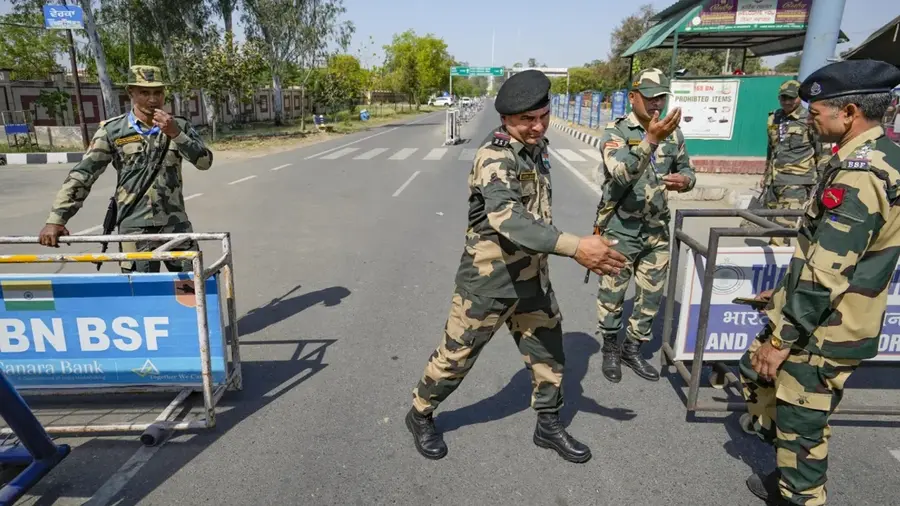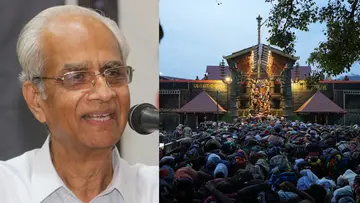Pakistan suspends Simla Agreement, shuts border, trade & airspace to Indian airlines

Security personnel stand guard at an Integrated Check Post near the Attari-Wagah border, in Amritsar district, Punjab. Image Source : PTI

Web desk
Published on Apr 24, 2025, 04:59 PM | 2 min read
New Delhi/Islamabad: In the aftermath of the deadly Pahalgam terror attack, which claimed the lives of 26 civilians, tensions between India and Pakistan have escalated significantly. On Thursday, Pakistan announced a series of retaliatory measures following India’s decision to suspend the 1960 Indus Waters Treaty and downgrade diplomatic relations. The measures were unveiled during an emergency meeting chaired by Pakistani Prime Minister Shehbaz Sharif, who issued a stark warning that any attempt by India to divert water allocated under the treaty would be considered “an act of war,” signaling a serious escalation in the already strained bilateral ties.
In response to India’s actions, Pakistan also declared the suspension of the 1972 Simla Agreement, a key framework for post-war relations between the two countries. Additionally, Pakistan closed the Wagah border to all cross-border movement, severed direct air connections by shutting its airspace to Indian carriers, and placed a hold on all bilateral agreements with India, including the Simla Agreement. The government’s statement also condemned India’s alleged role in fomenting terrorism inside Pakistan, accusing India of violating international law and UN Resolutions on Kashmir.
India responded with its own series of measures, including the immediate revocation of all valid visas issued to Pakistani nationals, with the exception of medical visas, which remain valid until April 29. Pakistanis currently in India have been instructed to depart before their visas expire. India also issued a travel advisory urging citizens to avoid traveling to Pakistan and advising those already there to return due to heightened security concerns.
The Indian government's response followed a meeting of the Cabinet Committee on Security (CCS) chaired by Prime Minister Narendra Modi. Key measures announced included the suspension of the Indus Waters Treaty, with India accusing Pakistan of misusing the treaty’s provisions by harboring terror groups responsible for attacks on Indian civilians. Other punitive actions included the expulsion of Pakistani military attachés and the closure of the Attari land transit point.
The Pahalgam attack has provoked widespread international condemnation. Countries such as the United States, China, Russia, France, and the European Union have issued strong statements denouncing the attack and calling for justice for the victims. The United Nations Secretary-General has called for an impartial investigation, stressing the importance of de-escalation and adherence to international humanitarian norms.










0 comments